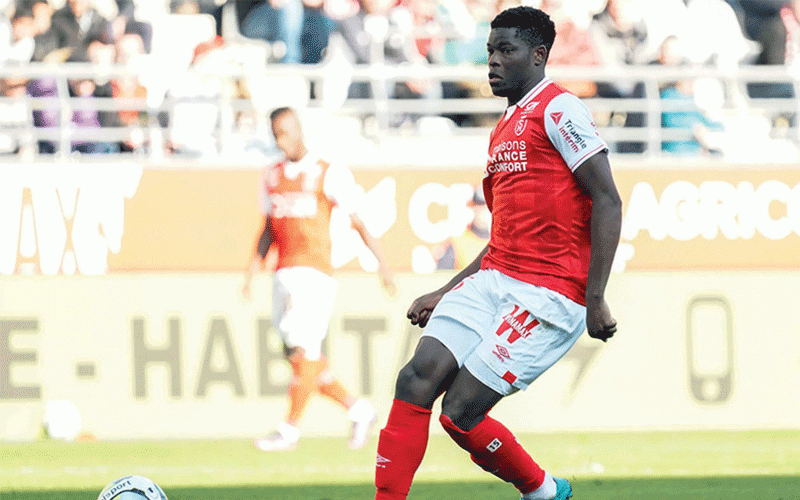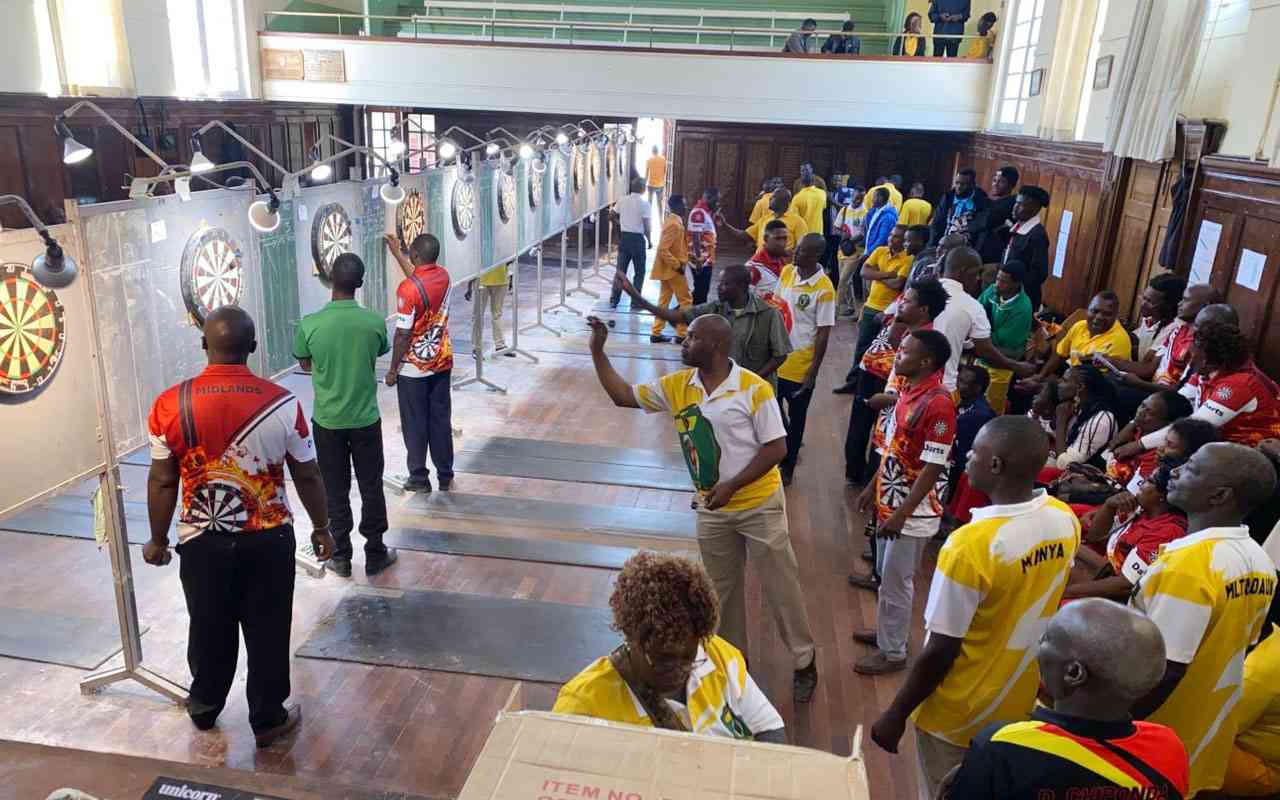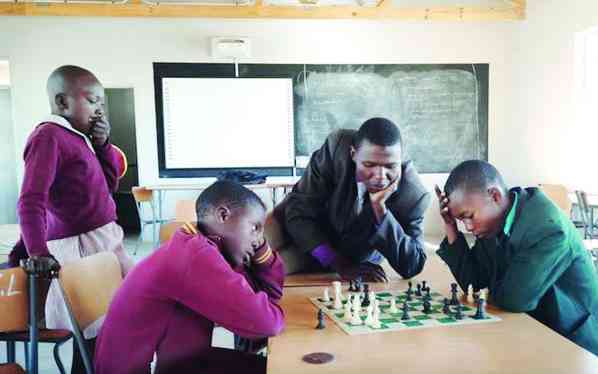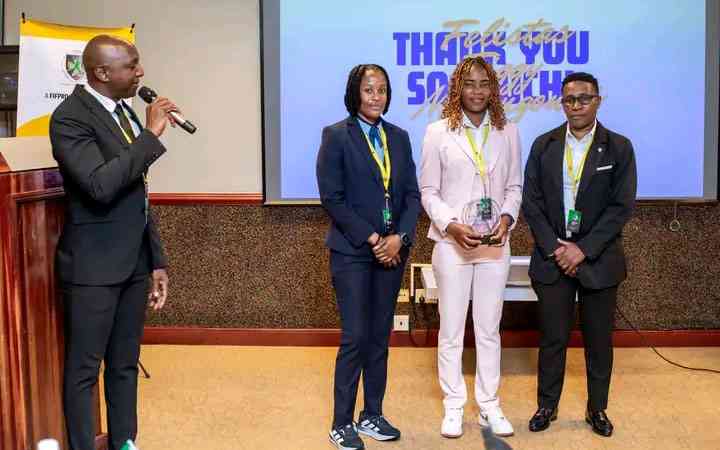
WHEN I was growing up, my mother always questioned my longing to be a footballer. She was unsure about the morals of the career choice; about the kind of people these men became when they were introduced into that world of media and money. I told her that she had to have confidence in the son that she had raised; that the principles she had instilled in me would influence who I am as both a person and a player, and that any platform I developed would be used to make a positive change in this world.
When my agent first told me about the new clause in the contract that I was being offered with Stade de Reims, it came as a huge surprise. I had never heard about something like this happening in football before and I had never mentioned anything of the kind to the club — the initiative all came from them.
The commitment to donate €100 per kilometre I run is no mean feat, as I average around 11 or 12 per game, which can see €1,200 going towards my foundation in Zimbabwe every single match. It’s an incredible show of generosity, that was offered without any pressure or obligation, and to me it was a remarkable display of faith in me not just as a player, but as a human being.
When I heard about the clause, I didn’t need to ask any more questions. I told my agent immediately that I wanted to sign because this was the kind of club that I wanted to play for; one that looks to improve the lives of others and one that helps me to be both a player and person that my mother can be proud of.
We’re not wasting any time either. The contract has already come into effect and I played my first match under it in our league fixture against Lille. It was such a crazy experience. There was a counter on the big screen so that everyone could see how far I had run, and both my team-mates and the supporters were cheering me on, giving me the energy to keep pushing myself. It was such a tough game and my legs were gone by the end of it, but we took the three points and started something truly amazing beyond the pitch.
Currently, the Marshall Munetsi Foundation supports around 60 children in Zimbabwe that otherwise just wouldn’t have access to an education. Unfortunately, basic schooling is not free in most African countries as it is in Europe and there are so many children whose futures are hugely encumbered by this. Those who don’t have parents, who perhaps live with their grandparents that have no source of income or who even end up being homeless, have no way to better their situation.
We give them what they need to get a solid start in life, providing them the basics such as school fees, books and uniforms, but also offering a network that goes that extra mile in understanding what they need to succeed. For example, if they want to play sport, I am there to share my experiences. If they are interested in starting a company, we can connect them with someone in business who can mentor them.
The core value of our foundation is to give as many underprivileged children as possible access to a better education and ensure that young kids have the freedom to make decisions, not from a point of desperation, but a position of strength.
- Mavhunga puts DeMbare into Chibuku quarterfinals
- Bulls to charge into Zimbabwe gold stocks
- Ndiraya concerned as goals dry up
- Letters: How solar power is transforming African farms
Keep Reading
When I was in high school, I got selected to play for the U-17 Zimbabwe national team and I think that at this point I realised that I had a chance of making football into my career; my dreams had put me on the right path and I had the training and education to make the journey.
That wasn’t the norm for my upbringing, though. Getting an education was tough. Most of the kids around me were dropping out of school because they couldn’t afford to be there and had to start making their own way in the world. There were girls who got married way too early after meeting men who seemed to be able to give them a better life; men who would get them pregnant and disappear from their lives, leaving them in an even more desperate situation than before. Young guys got involved with drugs because it seemed like quick money, not realising how hard their futures would become.
I started the foundation to give these children a chance to dream of a better future, providing them with the education and support that they need to achieve it. The goal is to help as many vulnerable children as possible with the funds available and, if the opportunity presents itself, perhaps even build our own institution and hire our own teachers so we can provide an education directly. If it’s successful, who’s to say that we can’t even go beyond that? Who’s to say we can’t help millions instead of hundreds, and not just in Zimbabwe, but all across Africa?
I’m proud of the initiative and hopeful for its future. At the same time, though, the responsibility to educate children should not rest with the occasional footballer, but rather with governments. Yes, as players we hold privileged positions, and it’s important to remember who we are and where we come from, and to use our platforms for good. However, the goal isn’t for every successful sportsperson to set up a school for the underprivileged – it’s to raise awareness that there’s an underlying issue that needs to be addressed.
Africa has plenty of minerals and resources. We have more millionaires in government than we do on the pitch. The change needs to start with them.
Even the decision to ban the Zimbabwe national team is already taking away so much from our young population. Where would I be without the dream of playing for my country? Where is the aspiration for boys and girls to partake in sport, to chase a ball around with your friends in hopes of becoming the next Marshall Munetsi or whoever else they look up to?
These children have had their education taken from them, their sport, and so much else – and it gets to the point where you have to wonder: what’s left to inspire them to a better life? Helping them is something that is so close to my heart and I can’t explain how much it means to be so supported in my efforts to do so.
It’s not just Stade de Reims who have encouraged me in my activism, but coaches, fans, and even opponents have reached out in support of the new clause in my contract. My team-mates regularly donate clothes, or other items that they think might be useful to the kids and it really doesn’t feel like I’m doing this alone, but as part of a community, and we all know that’s exactly what it takes to raise a kid.
I’m going into next season as a footballer determined to give the best performance for his club in every single game. At the end of the day that’s what I’m hired to do, and taking home the three points will always be my focus when I step onto the pitch. I won’t be tracking how far I’ve travelled, but I know that the better I play, the more game-time will be available for me, and the more opportunities to run as far as I can and achieve the best possible results for both my club and foundation.
However, Stade de Reims have shown an interest in my life beyond the 90 minutes; they have shown that they recognise their players as people with lives and goals outside of football – and I think that is such an important factor that is missing in today’s game. I thank them for the opportunity to not only earn money for a good cause, but to prove myself as a role model both on and off the pitch.
I hope that together we can not only help children back home in Zimbabwe, but inspire those in more privileged situations to be the change they want to see in the world; to make football a positive community that we can all be part of.
Marshall Munetsi plays for Stade de Reims. The midfielder donates 10% of his earnings to his foundation, which helps provide education for underprivileged children in Zimbabwe. His club introduced a clause in his contract that would see them donate a further €100 for every kilometre run by Munetsi during play. - FIFPro










